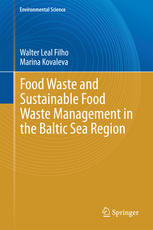

Most ebook files are in PDF format, so you can easily read them using various software such as Foxit Reader or directly on the Google Chrome browser.
Some ebook files are released by publishers in other formats such as .awz, .mobi, .epub, .fb2, etc. You may need to install specific software to read these formats on mobile/PC, such as Calibre.
Please read the tutorial at this link: https://ebookbell.com/faq
We offer FREE conversion to the popular formats you request; however, this may take some time. Therefore, right after payment, please email us, and we will try to provide the service as quickly as possible.
For some exceptional file formats or broken links (if any), please refrain from opening any disputes. Instead, email us first, and we will try to assist within a maximum of 6 hours.
EbookBell Team

5.0
80 reviewsThis work presents the findings of an extensive study on the state-of-the-art regarding the problem of food waste in Belarus, Estonia, Germany, Latvia, Lithuania, Poland and Sweden. The results show that the problem of food waste can be found at different levels in each country and that our knowledge of it is limited by the current lack of studies in the area. The problem is primarily due to food waste generated by the manufacturing sector, mostly in the form of unused or inefficiently used by-products, as well as on a share of food thrown away by households that is still suitable for human consumption. The main reduction/prevention method, applied across the countries, is food donation; the remaining methods are the same ones used for biodegradable waste in the respective countries. The findings gathered in this study show a number of potential measures/methods for sustainable food waste management, which may be considered in future works in order to reduce the amounts of food waste generated in each of the aforementioned countries.